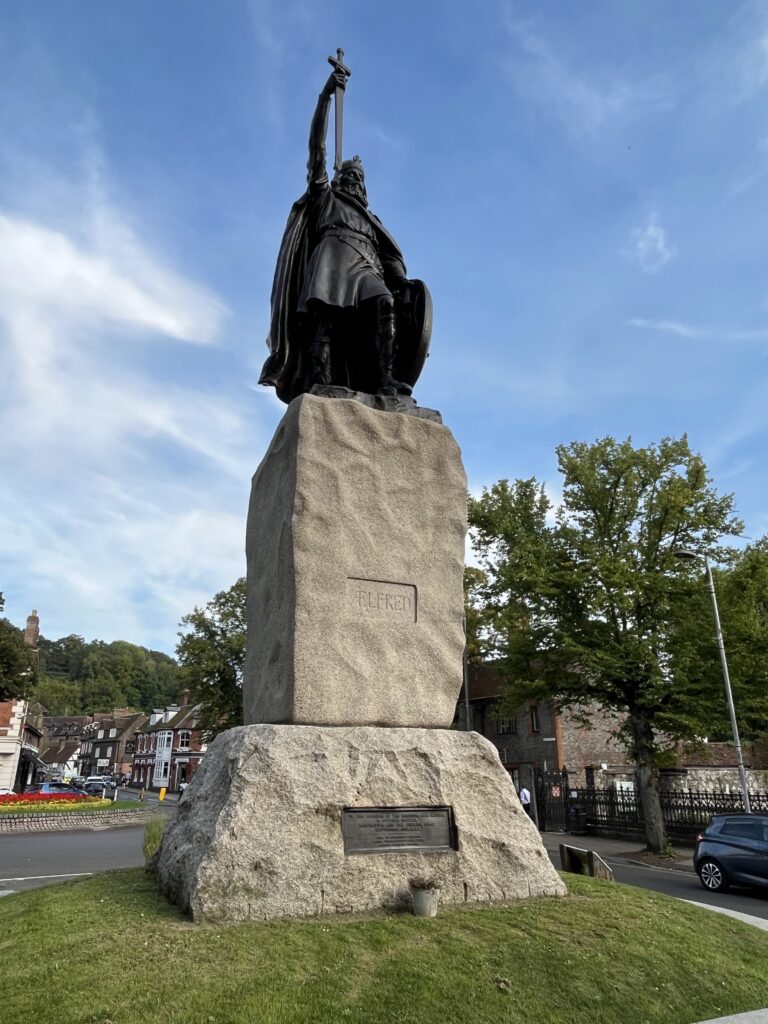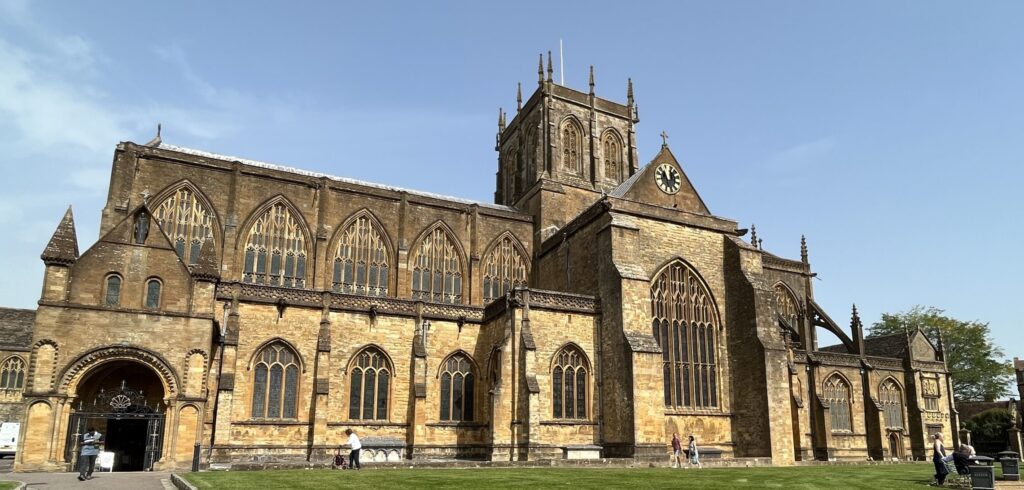
Today we left Oxford for Brighton. through During dinner last night I planned how to pack the most King Alfred stops into our drive south before arriving in Brighton. After leaving Oxford the complaints started.
“There are too many stops,” and “We will not have enough time to shop in Winchester,” they said. I reminded them they made no objection during dinner, but they persisted.
Attitudes improved when we caught our first view of Sherborne Abbey. Sherborne Abbey is where Asser, our posthumous guide and author of Life of King Alfred, was bishop from 892 until 909 A.D. Sherborne Abbey is also where Alfred’s two older brothers and predecessors as king, Aethelbald and Aethelbert, were buried.

The GSB team loves bones as long as they do not become worshipped (we cringe at even the word “venerate”). Bones for us are a reminder of both the reality and finality of a lived life but also that the kingdom of God transcends the contribution of any one person. It was fitting that on our last Alfred day we would be looking at the bones of his contemporaries.
The itinerary called for stopping at Salisbury to see the Salisbury Cathedral, but given the prior complaints, I decided to concede to the rest of the team and by-pass Salisbury. Even Moses allowed the people to write a certificate of divorce because of the hardness of their hearts.
Instead, we went directly to Winchester, where Alfred had his palace after defeating the Vikings and where he was buried, and exhumed, and reburied and then lost. Archaeologists, however, are still digging in the area and are ready to subject what they find to DNA testing. Also buried here were other early monarchs, including Cenwalh (643-672), Egbert (802-839), Ethelwulf (829-858), Canute and Queen Emma (1016-1035), and William the Conquerer’s son King William II (1087-1100). Jane Austen’s tomb is also in the church.
Alfred’s accomplishments far exceed the space allotted for this post, but they include establishing a burgh system for providing a ready and reliable defense of his kingdom, supporting the spread of Christianity and education throughout the country, and personally translating Latin works (Psalms, Gregory the Great’s Pastoral Care, and Boethius’s Consolation of Philosophy) into English. Alfred was devout, virtuous, just, and courageous. He is considered by many to be the greatest western leader since Charlemagne.
Alfred accomplished much for the kingdom of God. He left his measure of rule looking more like the kingdom of God than when he found it. Christians are far too eager to abdicate responsibility for their measure of rule and bide their time until they can escape the planet for heaven. Thank God Alfred did not have such an attitude. Instead, he lived out the Biblical admonition to embrace one’s life as a race to be won.
“Do you not know that in a race all the runners run, but only one gets the prize? Run in such a way as that you may win. . . . Therefore, I run in such a way, as not without aim; I box in such a way, as not beating the air.’
1 Corinthians 9:24, 26
“Therefore, since we have so great a cloud of witnesses surrounding us, let us also lay aside every encumbrance and the sin which so easily entangles us, and let us run with endurance the race that is set before us . . . .”
Hebrews 12:1
As we left Winchester, we happened upon the statue of King Alfred. The plaque on it read: “To the founder of the kingdom and nation.” Well said. GS

